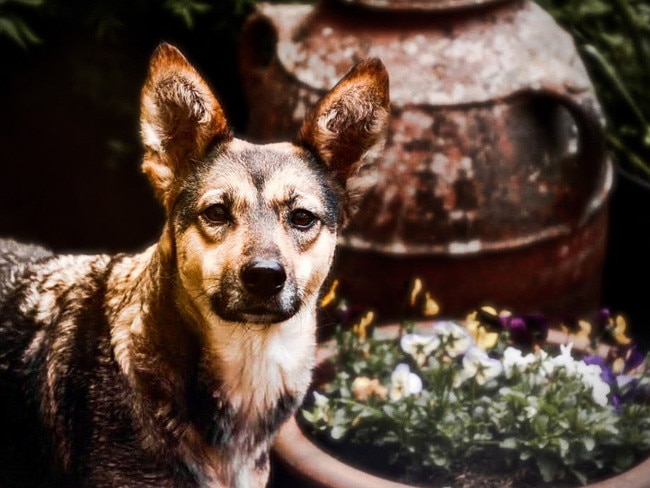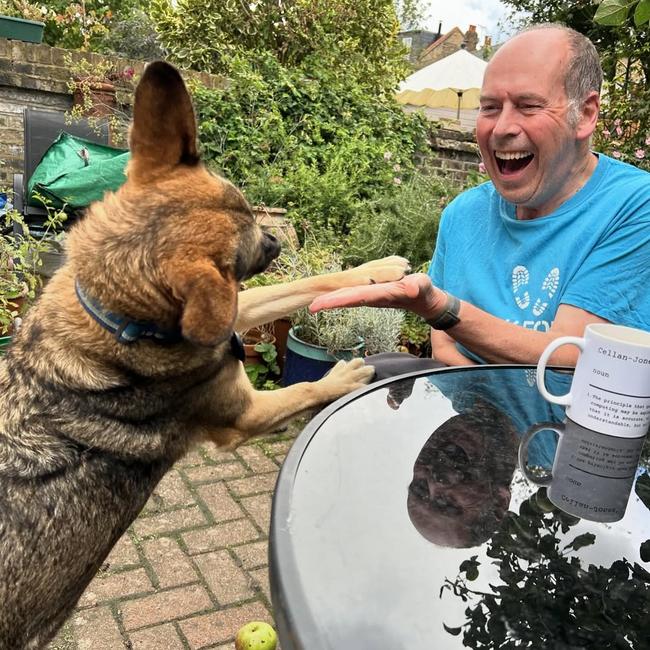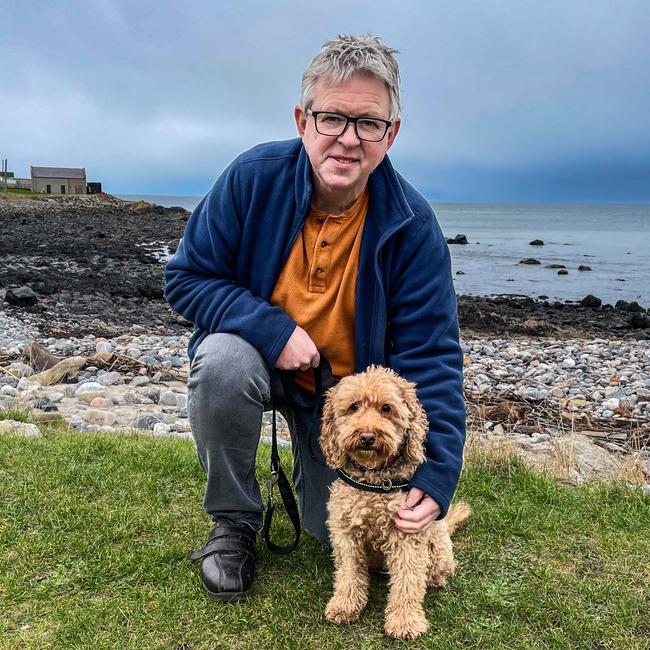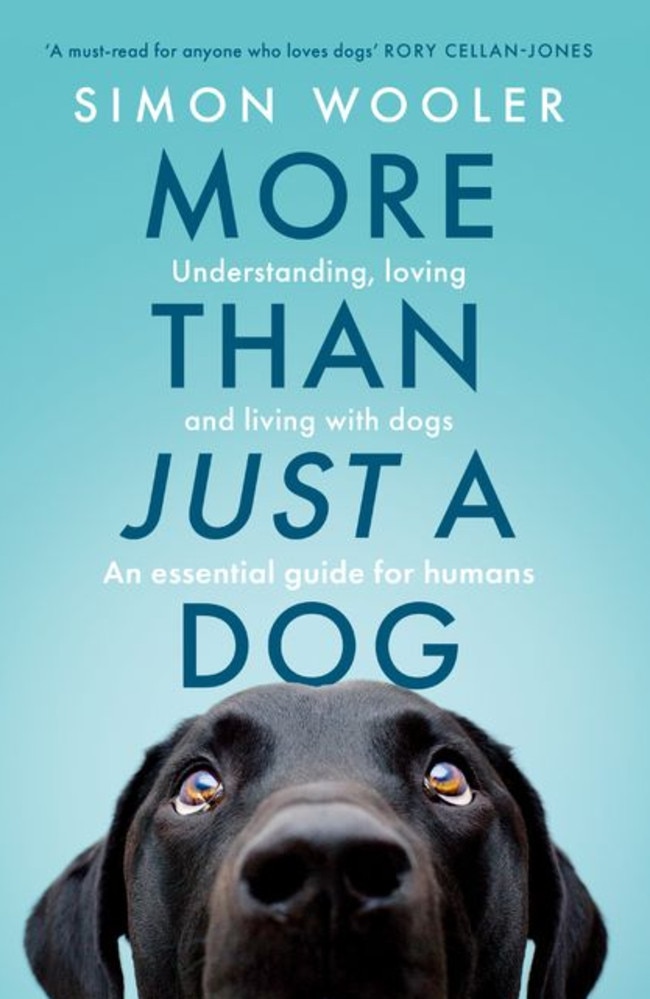‘Dogs don’t do guilt’: What your best friend is really up to
The animal expert who helped save social media’s most famous fearful dog, Sophie From Romania, shares three things all dog owners need to know – and how to help a pooch in panic.
Books
Don't miss out on the headlines from Books. Followed categories will be added to My News.
Dog behaviouralist Simon Wooler has built a career helping owners with their pets – including working on the rehabilitation of a terrified rescue dog from Romania.
Sophie’s journey has been shared on social media and on the printed page by her adoptive owner; now UK-based Simon has written a book, More Than Just A Dog, diving into the bonds between humans and our best furry friends.
Here he shares three things we all need to know.

Dogs don’t do guilt (or spite)
If your dog has chewed through one of your favourite shoes, that look he gives you isn’t guilt. Oh no. He has no idea that chewing shoes is ‘wrong’ and certainly doesn’t know these particular shoes are special – dogs have no fashion sense. They are, however, super-smart decoders of human body language and your dog will have realised the instant you appeared that you’re not pleased. What had seemed such a fun day was about to go downhill. So he’ll adopt a posture of appeasement – maybe he can head this row off at the pass.
All too often we assign dogs a moral sense they don’t have and punish them when they do something we think is obviously ‘wrong’. But that’s unfair. Dogs don’t do things to spite us. They just do what works for them. As far as your dog was concerned, your fashion forward footwear had a good texture and smelt pleasingly of you – great chewing potential. So offer something else for a relaxing chew – a toy, a Kong or even an old shoe you’re prepared to sacrifice. And keep the Sambas or the Manolos out of reach.

Dogs do feel love
Dogs have evolved alongside humans for thousands of years and their lives today are largely structured around their relationship with us: family, playmates, familiar places and established routines. They undoubtedly develop strong bonds with particular people who provide the food, of course, but also the fun and the companionship.
When they lose a family member, they feel the absence, even though they can’t know whether it’s permanent. They’ll certainly be aware of the changing patterns of our own behaviour, but the grief they feel is not simply a reflection of ours. The good news is that they can adapt and we can help them do that with gentle games or just our simple presence. If you’re musical, playing an instrument or singing I’ve found can soothe as well. And that can help us to adapt, too.
Of course, not all absences are permanent. And nothing compares to the unbridled joy of a dog who has been feeling the loss of a favourite human and is reunited with the student returning from college, the soldier from deployment or the worker from a business trip away. If that’s not love, I don’t know what is.
Dogs feel fear and anxiety – and it’s often interpreted as bad behaviour

I’ve been working with dogs for more than 10 years, specialising in helping those who are profoundly fearful. Not all these dogs have been mistreated. Their fear can be the result of poor socialisation, limited early experiences or genetics. The object of their fear can seem incomprehensible to us. But for these dogs, anything new can be a source of terror and their response to flee, hide away or display aggression.
The answer is not to force them to face the source of their fear head on or to punish them, but to adopt the same process psychologists use to treat human phobias: gradually exposing them to the scary thing at a very low level or at a distance that they can tolerate and pairing the source of their fear with something positive. Here, too, play can help build a bond. Over time, the fearful dog will come to see their human as a safe base and feel more able to explore the new.
And for generally happy dogs who experience a shock and are frightened, should you comfort them? Absolutely, yes. Talk gently and stroke them if they seek your touch. You are their source of safety so be their friend. ‘Don’t comfort a fearful dog’ is just a myth.

More Than Just A Dog by Simon Wooler is published by HarperCollins on February 12.
Are you more of a dog person or a book person? Discuss at the Sunday Book Club group on Facebook.
Originally published as ‘Dogs don’t do guilt’: What your best friend is really up to


